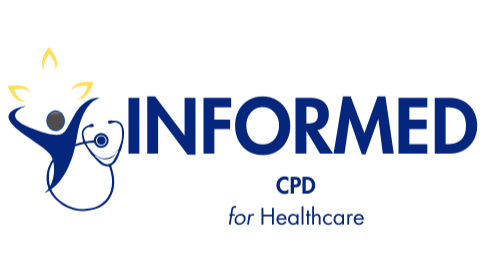What are Some of the Key Changes Introduced by Good Medical Practice 2024
Next week, on January 30th, the General Medical Council (GMC) will introduce the revised version of its Good Medical Practice professional standards framework which was initially introduced a decade ago. We look at some of the key changes.
What is Good Medical Practice 2024?
What changes are introduced by Good Medical Practice 2024?
Montgomery v Lanarkshire [2015] UKSC 11. Accordingly, the revised professional standards framework incorporates aspects of the regulator’s 2020 professional standards guidance 'Decision Making and Consent'.
The guidance has been restructured so that there are 4 domains or sections:
1. Knowledge, skills and development
2. Patients, partnership and communication
3. Colleagues, culture and safety
4. Trust and professionalism
Clearer Definitions
The guidance firms up the definitions of “must” and “should”
Must: is “used for a legal or ethical duty you’re expected to meet, or be able to justify why you didn’t"
Should: is “used for duties or principles that either: may not apply to your or to the situation you’re currently in, or you may not be able to comply with because of factors outside your control”
Key themes of change
The renewed guidance set out in GMP 2024 introduced changes under 5 key themes:
1. Creating respectful, fair and compassionate workplaces
2. Promoting patient-centred care
3. Helping to tackle discrimination
4. Championing fair and inclusive leadership
5. Supporting continuity of care and safe delegation.
Addressing sexual harassment in medicine and surgery
The framework acknowledges that sexual harassment in medicine and surgery have been raised as concerns. A study by Begney et al (2023) in late 2023 found that nearly a third of female surgeons had been sexually harassed by a colleague. The GMC have sought to address this under the change theme “Creating respectful, fair and compassionate workplaces” where the GMC have added a new paragraph:
“[You] must….help to create a culture that is respectful, fair, supportive and compassionate by role modelling behaviours consistent with these values" (para 52).
“You must treat colleagues with kindness, courtesy and respect”
“You must listen to colleagues…communicate clearly, politely and considerately …recognise and show respect for colleagues’ skills and contributions…work collaboratively with colleagues and be willing to lead or follow as the circumstances require”.
Doctors must also “take active steps to create an environment in which people can talk about errors and concerns for safely” (para 76).
Promoting patient-centric care
Another key changing theme relates to 'promoting patient-centred care' with frameworks outlined in Decision making and Consent now incorporated into Good Medical Practice.
“You must listen to patients and encourage an open dialogue about their health, asking questions to allow them to express what matters to them" (para 29). This reflects the legal duty upon doctors to "take reasonable care to ensure that the patient is aware of any material risks in any recommended treatment, and of any reasonable alternative or variant treatments" as established in Montgomery [at 87].
The framework continues that:
“You should check patients’ understanding of the information they’ve been given, and do your best to make sure they have the time and support they need to make informed decisions if they are able to’ (para 31). This, reflecting the sentiment of Supreme Court Justices in Montgomery when they stated "the doctor’s duty is not…fulfilled by bombarding the patient with technical information which she cannot reasonably be expected to grasp, let alone by routinely demanding her signature on a consent form” (Montgomery v Lanarkshire (2015) [at 90])
The guidance also includes a new section entitled “caring for the whole patient” which encourages doctors to help patients help themselves by helping to “support patients in caring for themselves” (para 38)
Doctors are also advised that they should “ask patients about any other care or treatment they are receiving…and check that any care or treatment…[they] propose, provide or prescribe is compatible” (para 39) .
There is also a new paragraph advising doctors “should” regularly “check that the medications continue to meet the patient’s needs and are optimised for them” and “consider the overall impact of the patient’s treatments, and whether the benefits outweigh any risk of harm” (para 40)
Further Changes
Further changes are introduced to tackle discrimination with the wording strengthened so that doctors "must not abuse, discriminate against, bully or harass anyone based on their personal characteristics, or for any other reason" (para 56).
New paragraphs have also been added so that behaviours are "adequately addressed" and people are supported, including "concerns are dealt with promptly...[and] escalated where necessary".
The full list of changes can be found in the GMC publication Key Changes to Good Medical Practice.
Note: the information in this blog does not constitute legal or any other form of professional advice. Whilst every effort has been taken to ensure the accuracy of the information contained in this post, neither the author nor Informed CPD accept any liability, with respect to loss, damage, injury or expense arising from any errors or omission in the contents of this work.
References
Begeny, C., Arshad, H., Cuming, Dhariwal, T., Fisher, R., Franklin, M, Jackson, P, McLachlan, G., Searle, R., Newlands, C (2023) Sexual harassment, sexual assault and rape by colleagues in the surgical workforce, and how women and men are living different realities: observational study using NHS population-derived weights, British Journal of Surgery, Volume 110, Issue 11, November 2023, Pages 1518–1526, https://doi.org/10.1093/bjs/znad242
General Medical Council (2020) Decision making and consent
General Medical Council, Good Medical Practice 2024
General Medical Council (2023) Key Changes to Good Medical Practice
Montgomery v Lanarkshire [2015] UKSC 11 at https://www.supremecourt.uk/cases/docs/uksc-2013-0136-judgment.pdf


